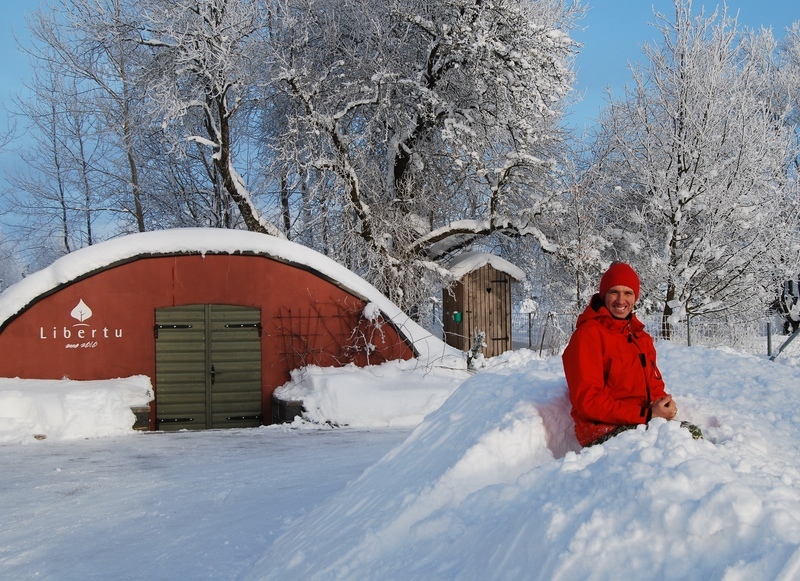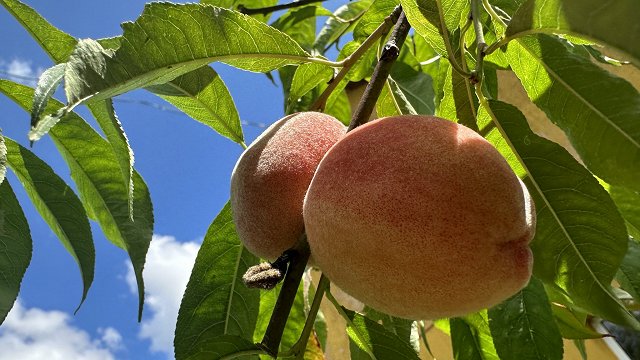Rarely has there been such unanimity among the panel of investors in the German business casting TV show "Die Höhle der Löwen" ["The Lion’s Den"]. "You are an entrepreneur in the classic sense of the word", praised finance tycoon Carsten Maschmeyer the pitch of the Estonian founder Anne-Liis Theisen. Also sales mogul Ralf Dümmel applauded: "A very, very strong performance! One with an asterisk." In the popular show aired on the TV channel Vox, in which entrepreneurs have to present and promote their business idea to five prominent investors, Theisen was looking for a cash injection in her start-up ÖselBirch. She pitched for an investment 60,000 euros in return for a 20 per cent stake in her family business on Estonia’s biggest island Saaremaa – formerly also known as Ösel.
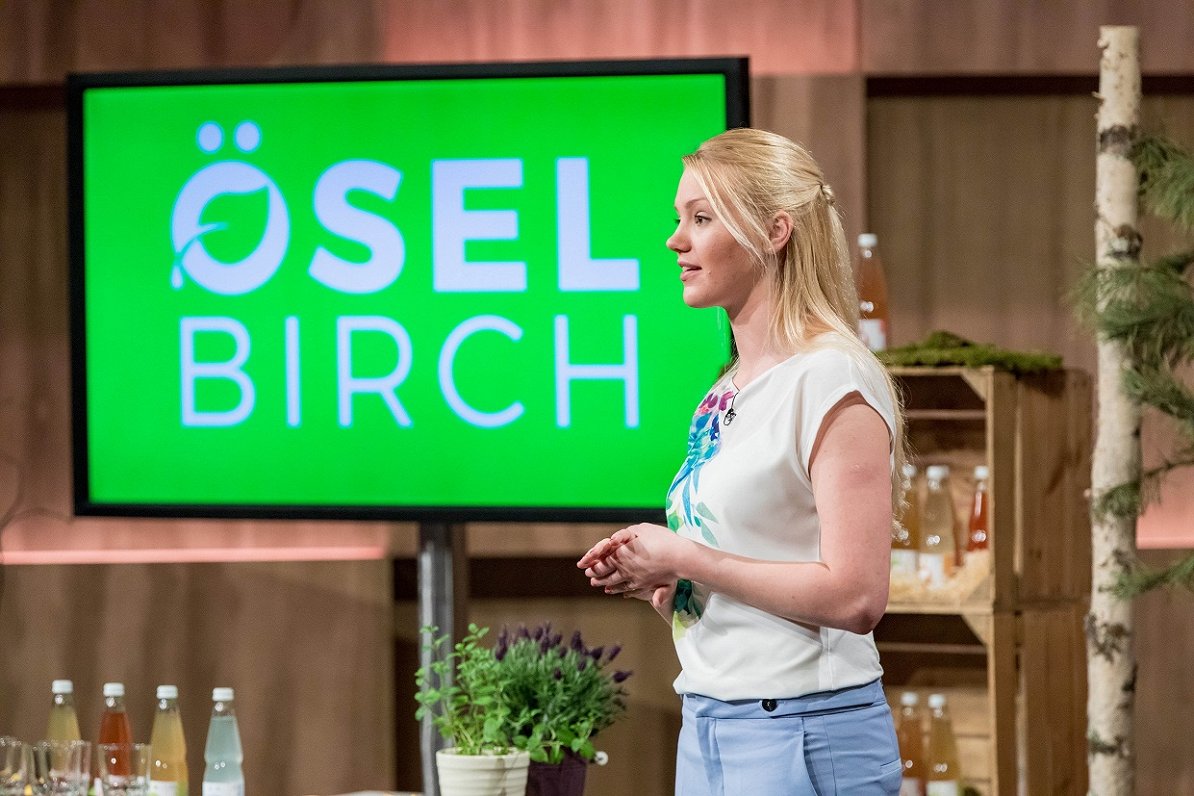
ÖselBirch produces refreshment drinks based on a fermented juice that is well-known in the Baltics but many in Germany have never heard of: birch water. The drinks are inspired by the tradition of Theisen’s grandmother that every year in early spring headed into the woods of Saaremaa to tap and collect the slightly sweet sap from the tree and fermented the juice to preserve for a longer time. "So we also had always a healthy refreshment drink in the summer", Theisen told the German audience during her appearance on the show, adding that it is not pasteurized, preservative-free and contains only natural traces of sugar.
Birch sap into business
The delicately sweet fluid from her childhood has now become the lifeblood of Theisen’s business. Together with her two sisters and her older brother, she founded ÖselBirch in 2016 and started the first production in July 2017 – after a successful crowdfunding project at Kickstarter. The range of drinks the family start-up rolled out included the naturally fermented birch water based on the traditional recipe of their grandmother and different flavours like rhubarb, aronia, sea buckthorn or mojito. Even in Estonia where birch sap and the tapping process are a national pastime these fermented variants were kind of new but trying out the market proved to be successful – one sort was even served at the official reception of the Estonian president for the country’s 100th anniversary.
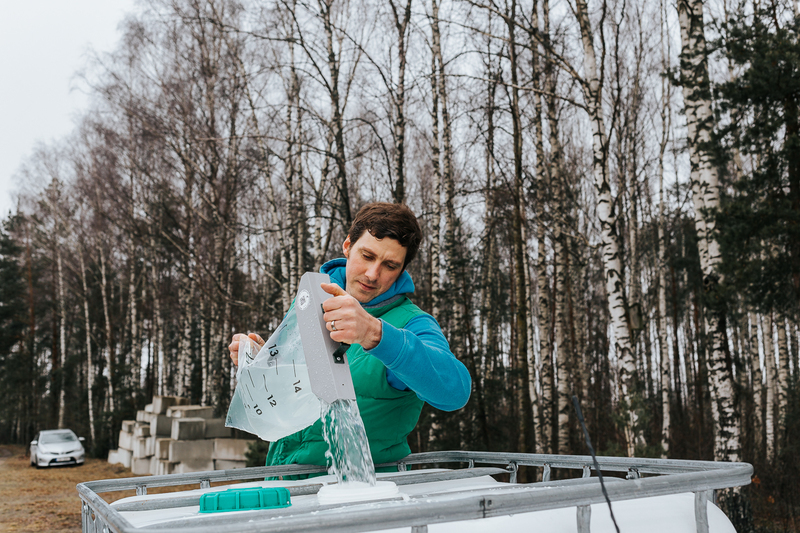
In Latvia, Linards Liberts has similarly revamped the rather archaic image of birch sap that has been one of the most popular drinks in the Baltic State for centuries. It was long only sold in plastic bottles at market and roadside stalls, but the tree tapper has put the production and marketing of birch juice on a new level. Liberts started his family business in the central Latvian town of Ikšķile in 2010, using the extracted raw material from behind the white bark of around 200 birch trees close to his small organic farm. At sight-seeing tours in his birch juice and wine cellar you can taste sap not only in its fresh natural from but also converted into more unique and elegantly bottled drinks like fermented birch sap lemonade with hint of peppermint, still and sparkling wines, mulled wine and even a grappa-like schnapps.
"Birch sap is one of the freshest and purest drinks on earth. There are so many uses for it – that is why I love it so!", Liberts explains enthusiastically in his cellar stacked full of his birch juice products.
The innovative sap driller is especially proud of his flagship produce: sparkling wine that is made directly in the bottle according to the Méthode Champenoise - the classic Champagne production method. Rows and rows of bottles are thus going through their round of second fermentation under the vaulted ceiling of the cellar that Liberts recently extended into a decent winery. It takes about two years to get the final product that is sold only in small volumes but at a premium price. Distributed both in Latvia and abroad, the organic sparkling birch sap wine has already gained international attraction and reputation.
Fine wine from the Baltics
Back then, Liberts was the first who registered a birch juice winery in Latvia. Now there are several producers that in liquor stores and supermarkets share the shelves with other local produced wines made from berries and fruits. Baltic winemakers in recent years have successfully experimented with the local flora – and the results are fresh, aromatic and definitely out of the ordinary. Some of the producers like Tori Siidritalu (Estonia), Abavas Winery (Latvia) or Gintaro Sino (Lithuania) have already been recognised or even awarded at international competitions.
"We are doing quite good things with apples: ciders, sparkling wine, and also some apple wines", says also someone who should know: Raimonds Tomsons is one of the top wine experts in the Baltics and has been recognized as Europe's best sommelier in 2017. He sees a growing and dynamic domestic market for wines made in the Baltics that he considers great accompaniments to local products and dishes but could also be matched very well with other delicacies.

Besides apples also dandelions, rhubarb, primrose, rowan or blackcurrant, but also strawberries and blueberries are used for winemaking in the Baltics. Some wineries also cultivate grapes but the problem often lies in the quantity. "Making wine in the Baltics is still a big and resource-intensive challenge due to our rather cool climate with a short growing season. Still, we have some good producers here that are willing and trying their best", acknowledges Tomsons the efforts of the winemakers in his home country Latvia and two other Baltic countries.
Even though he finds it difficult to compare the Baltic wines with other ones from traditional wine-producing countries in the world, Tomsons sees the trend toward producing local wines positively.
"We have to be happy that there are some enthusiastic and passionate people who are doing wine in the Baltics", the wine expert says. "I think this is very good for our guests and tourists."
Many wineries offer tours of their manufacturing facilities that usually include a degustation in a tasting room and an opportunity to purchase wines. The same goes for the numerous micro-breweries that have been flourishing across the Baltics, offering large number of variety craft beers. If you cannot get there, you can try the beverages also in restaurants serving local food or buy them at food markets and department stores in the capitals.
Everything organic, bio, eco and natural
For achieving a greater variety of flavours, different fruits and berries are also often combined to supplement each other. Or they are pressed and at once turned into healthy, non-alcoholic alternatives that also have increasingly gained a foothold in Estonia, Latvia and Lithuania. Changing lifestyles and altering consumption habits have led to shifting of demand from soft carbonated drinks with high sugar content, artificial colouring, additives and flavourings towards biologically certificated natural fruit juices and functional beverages with varied health benefits such as immune-boosting properties or positive effects on the digestion and metabolism.
The trend can be observed in the dairy product shelves and beverages section of both specialised shops and mainstream supermarkets across the Baltics. Over the past years, fermented milk products with lactobacillus or bifidobacteria have become widely available and are placed in the store fridges right next to traditional products such as the ever-popular kefir – a fermented milk drink made with kefir grains. Rich in calcium and probiotics, kefir has been one of the staples already in Soviet times – it used to be drunken pure or with added seasoning and is also available in new flavoured varieties.
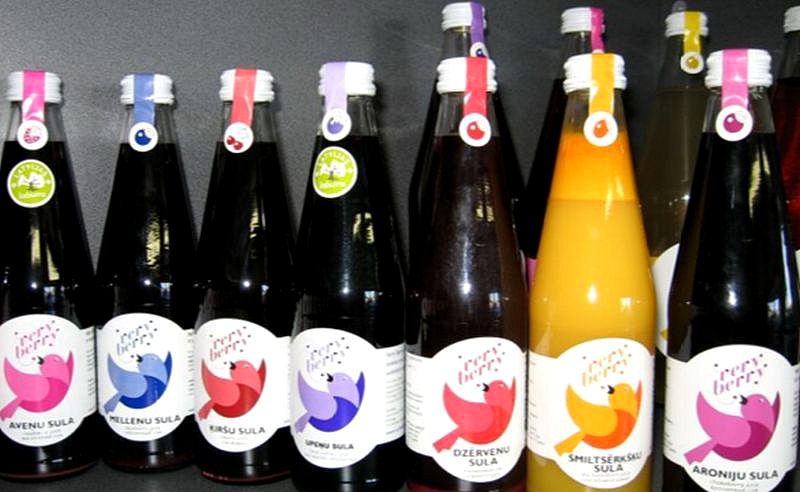
Many new and also established producers were coming out with pure or mixed regional, seasonal and ecological beverages, aimed mainly at a young, health-aware and trend-conscious clientele that is ready to pay a premium for the various functional advantages. “Staying natural is our key core value”, states for instance the website of the Latvian berry growing and processing company Very Berry that produces 100% pure juices in glass bottles. Taarapõllu Talu (Estonia) and Mana (Lituania) have also taken similar approaches in the neighbouring countries. Their entire product range is made from organic raw material what is also reflected in their packaging design, market communication and price tag.
Supporters of a healthy and natural lifestyle are targeted also by juice and smoothie bars that have popped up on city streets and in shopping malls. Freshly squeezed juices are now also directly available at machines in supermarkets, fuel stations and convenience stores across the Baltics. "We will make sure that you do not run out of vitamins" – so reads one of the many advertisements of the convenience store operator Narvesen.
The older generation in Estonia, Latvia and Lithuania might have only weary smile for this claim and the overall trend, as many people like the grandmother of Öselbirch founder Theisen anyway still do their own juice at home. Either used fresh or stored in countless glass jars in the pantry or basement, they ever since use everything what their garden and the nature has to offer. This includes also herbs that are collected and used for the preparation of healthy teas for any minor ailments. Or they are simply infused together garden fruits and berries into plain water from the crane or clean, pristine natural springs – as it is done also more and more in cafes, bars and restaurants in the Baltics.
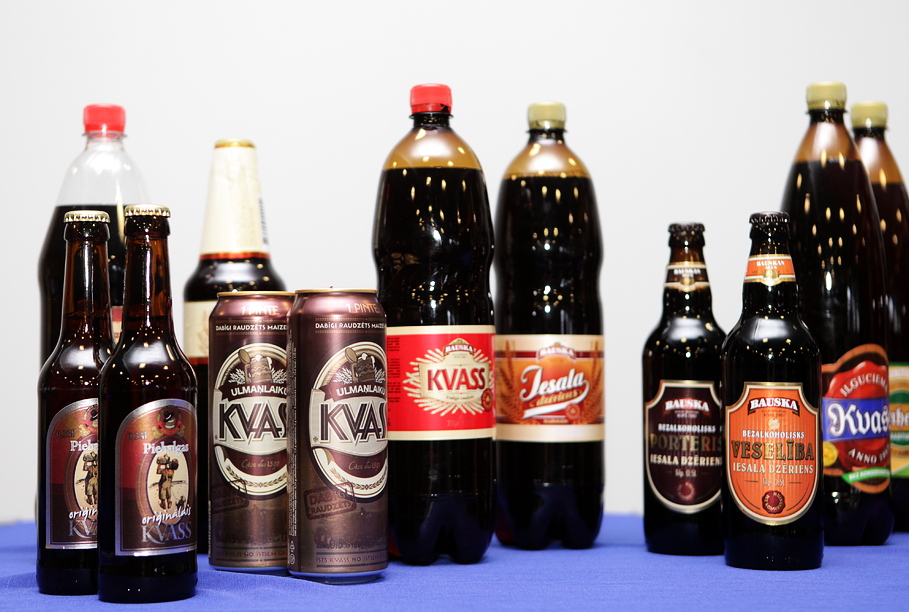
Other childhood flavours that are returning to the tables and replace sparkling drinks are mors made from different kind of berries, biological lemonades and naturals soda without artificial sweeteners or aroma-compounds. Still very popular in the Baltics is further also a 'bread drink' with a distinctive and refreshing taste that is known as kali in Estonia, kvass in Latvia and gira in Lithuania. This summertime favourite is traditionally brewed using fermented rye or black bread and serves as a non-alcoholic alternative to beer. While in Soviet times street vendors pushed carts around and poured the drink from big yellow canisters, nowadays you can find bottled commercial versions in any supermarket. Small-scale producers have revived authentic brews of the ever-so-slightly alcoholic, tangy beverage.
Drinks from the 'future'
Some entrepreneurs have now even started to combining the flavours of the meadows and produce organic niche beverages. "We squeeze the juice from fresh berries and make real dried herbal tea – like homemade tea. And then we mix them together and fill it in the package," explains Rolands Briņķis, founder and owner of the Latvian company Dabas Dots. The long-distance runner had the idea to commercialize the combined drink that he used to mix for himself after races to regain his strength because he did not want to drink store-bought food supplements, as the self-made entrepreneur told Latvian television.
Initially, Briņķis experimented at home, but then worked with specialists at the Latvia University of Agriculture on the recipes and final blends that are made up of mainly Latvian and Nordic flavours. The novel tea drinks without preservatives, concentrates, sugar or taste enhancers now are produced in a small modern factory in Nākotne – a village in the middle of Latvia whose name literally translate into 'future' in English. From there, the company’s assortment has already reached the shelves of supermarkets in Germany where the products are available in more 300 point of sales. "We are working with the store chains 'Rewe', 'Edeka', 'Globus', Alnatura' and other big enough chains," says Briņķis who wants to take on also other foreign markets with his organic products.
Also Anne-Liis Theisen has now managed to get into German supermarkets – even though it was some way to get there. Despite her acclaimed performance and professional pitch in the TV show, she left the studio empty-handed. None of the investors was willing to make a financial commitment since they saw a too big risk in the seasonality of the birch juice that can only be tapped for a few weeks in spring. The family company of Theisen thus might have not as much raw material as needed to scale up the ÖselBirch production and cover the demand, the panel argued.
Appearing in "Die Höhle der Löwen" still fired the turbo for the Estonian start-up and generated tremendous interest in the birch juice from Saaremaa. Öselbirch was able to attract a wide network of partners, went through an accelerator program and has taken a board its first investors. And despite some up-and-down and delay due to the Corona-crisis can now found in selected REWE Süd shops. Sap and tap!
This feature appears in the latest edition of the Baltic Business Quarterly magazine prduced by the German-Baltic Chamber of Commerce in Estonia, Latvia and Lithuania, and is reproduced here by kind permission. Find out more at the official website and read the rest of Baltic Business Quarterly magazine here: https://www.ahk-balt.org/lv/publikacijas/zurnals.
